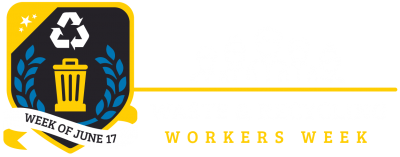
“I was in tears when I did this,” Riaza, 44, said as he held up the picture of a disabled man.
City Sanitation worker Anthony Riaza lost more than his left hand after it was crushed under a collection truck in a freak accident 10 months ago.
He lost the ability to pursue his greatest passion in life: making art.
Or, at least, that’s how it seemed.
Riaza’s left hand was his drawing hand, the one that he had been using to sketch “abstract urban art” since he was a boy growing up on the Lower East Side.
He returned home from St. Luke’s Hospital after the December 2014 mishap haunted by the thought that he’d never be able to draw again. But a month later, on Jan. 28, he picked up a charcoal pencil with his right hand and drew a line on a blank canvas.
Riaza’s hand was unsteady but he kept drawing.
By the time he was done, he had managed to sketch out a chilling portrait — a disabled man holding up his stump, a cross covering his left eye and tears running out of his right.
“I was in tears when I did this,” Riaza, 44, said as he held up the picture inside his basement studio in upstate Washingtonville.

 ANTHONY RIAZA
ANTHONY RIAZA RICHARD HARBUS/FOR NEW YORK DAILY NEWS
RICHARD HARBUS/FOR NEW YORK DAILY NEWSRiaza has created more than 100 pieces of art eight months after the accident.
“To me, it mirrored how I felt,” he said. “There’s a kind of anger in the eyes but also a fear.”
The drawing represented a breakthrough.
Nine months later, Riaza has created more than 100 works of art — some drawn with his newly-installed prosthetic left arm — and rediscovered his passion for life along the way.
“When I did this one, I realized I’m going to be able to do my art again,” Riaza said in his first interview since the accident. “It told me I’m going to be back doing what I loved.”
The accident that claimed Riaza’s hand came just as his art career was peaking.
Throughout his 22 years working for the Sanitation Department, Riaza filled his spare time by drawing and painting. A former graffiti artist, he was picked to exhibit his surrealist works at the Port Authority Urban Artists Showcase in September of last year. Several buyers had also started flocking to Riaza, who draws under the name Bane Seik.
“People just started to gravitate to what I was doing,” he said.

Riaza has drawn some art with his newly installed prosthetic arm.
“I was like, ‘I can retire from sanitation finally. This is my dream. This is what I’m finally going to get to do.’ And then, everything just kind of went left.”
Riaza remembers nothing from the accident, but his partner has since filled him in on the grim details.
They were picking up garbage along W. 66th St. near Columbus Ave. when Riaza fell from the front of the truck. His head slammed into a step on his way down, and the truck then rolled over his left hand.
“One minute I was on the truck and the next minute, I woke up in ICU,” he said.
“It was so surreal for me because I was sitting there, with no recollection of what happened, and I’m looking at my family and they’re all crying. It was like a bad dream.”
Riaza tried to stay positive after his arm was amputated just below the elbow, telling himself his injuries could have been worse. But his first few attempts at drawing with his right hand, in the hospital days after the accident, left him dejected and depressed.
“I couldn’t even hold the pen with my right hand,” Riaza said. “It was a really sad and dark thing for me.”
 RICHARD HARBUS/FOR NEW YORK DAILY NEWS
RICHARD HARBUS/FOR NEW YORK DAILY NEWS
Several buyers had also started flocking to Riaza, who draws under the name Bane Seik, before the accident.
But he kept at it, again and again putting pencil to paper in the hope that he’d rediscover his ability.
The January portrait changed Riaza’s outlook.
But his life was turned upside down again two months later — he was diagnosed with a blood clot in his brain, caused by hitting his head on the truck, that required emergency surgery. The operation was successful — and Riaza was back drawing days later.
In July, he was fitted with a state-of-the-art prosthetic left arm, allowing him to grip objects and open and close his hand.
The drawing has come slowly with the prosthetic — he cannot feel the pressure of the pencil or brush on paper — but Riaza has already started creating pictures using both of his hands.
Riaza is planning to retire in the coming months and seek a disability pension. He now hopes his story will encourage other artists struggling with disabilities.
“I realized art isn’t just in your hands,” Riaza said. “It’s in you. It’s in your spirit.”
“If it’s a passion,” he added, “it goes deeper than just the hands.”
To see more of Riaza’s art, visit www.baneseik.com.
http://www.nydailynews.com/new-york/losing-hand-didn-stop-sanit-worker-making-art-article-1.2392972


